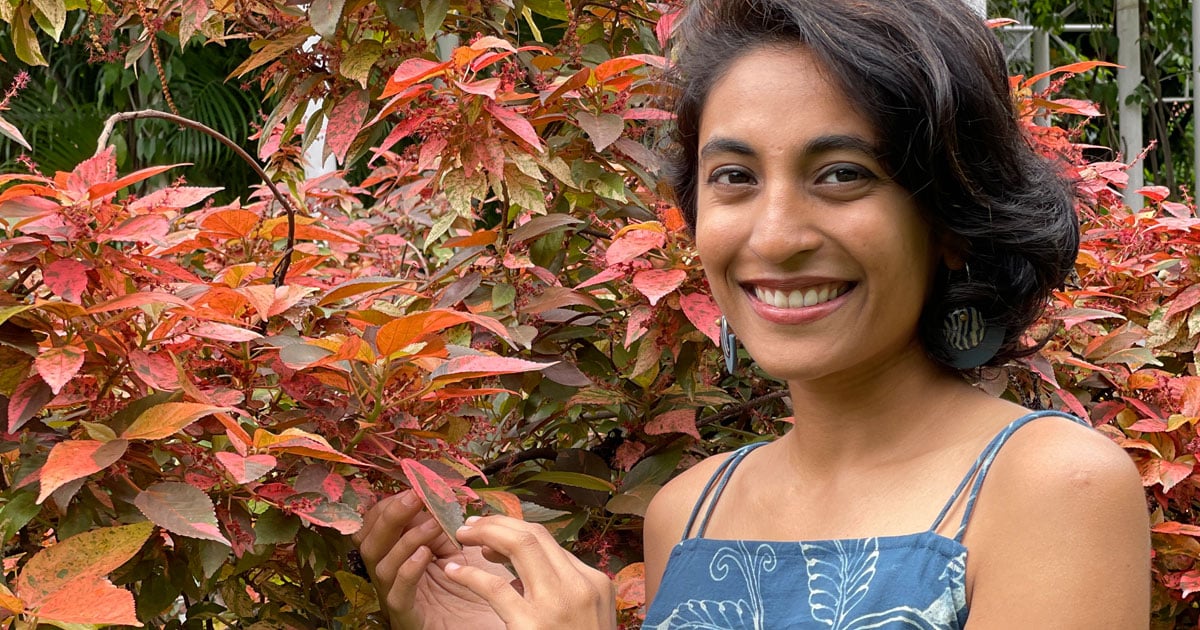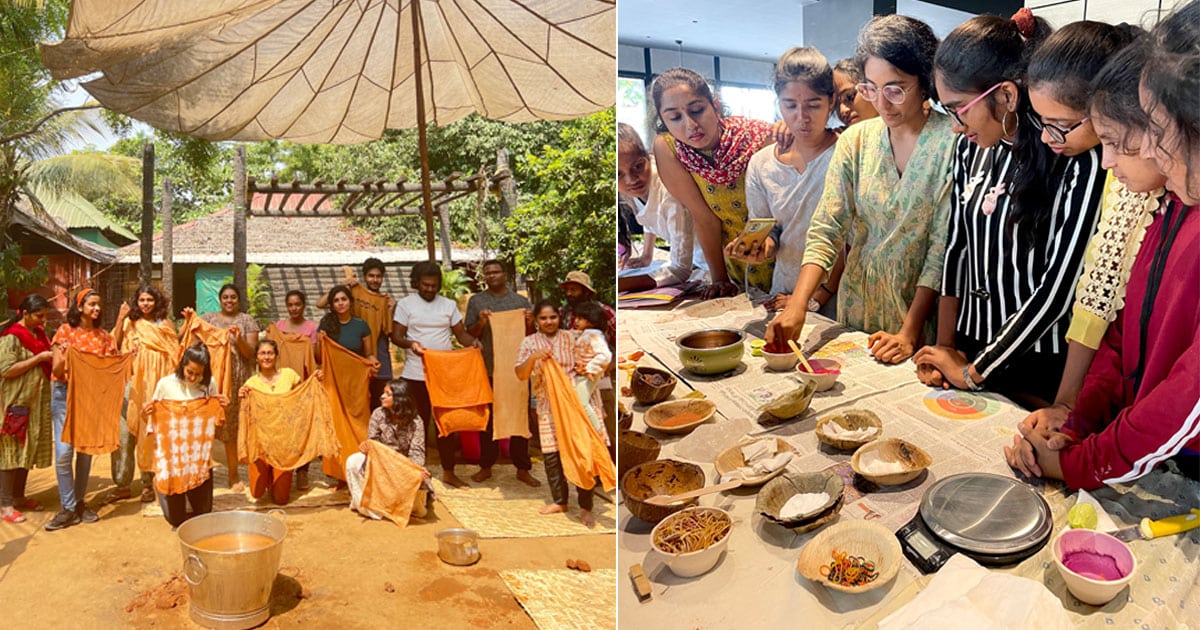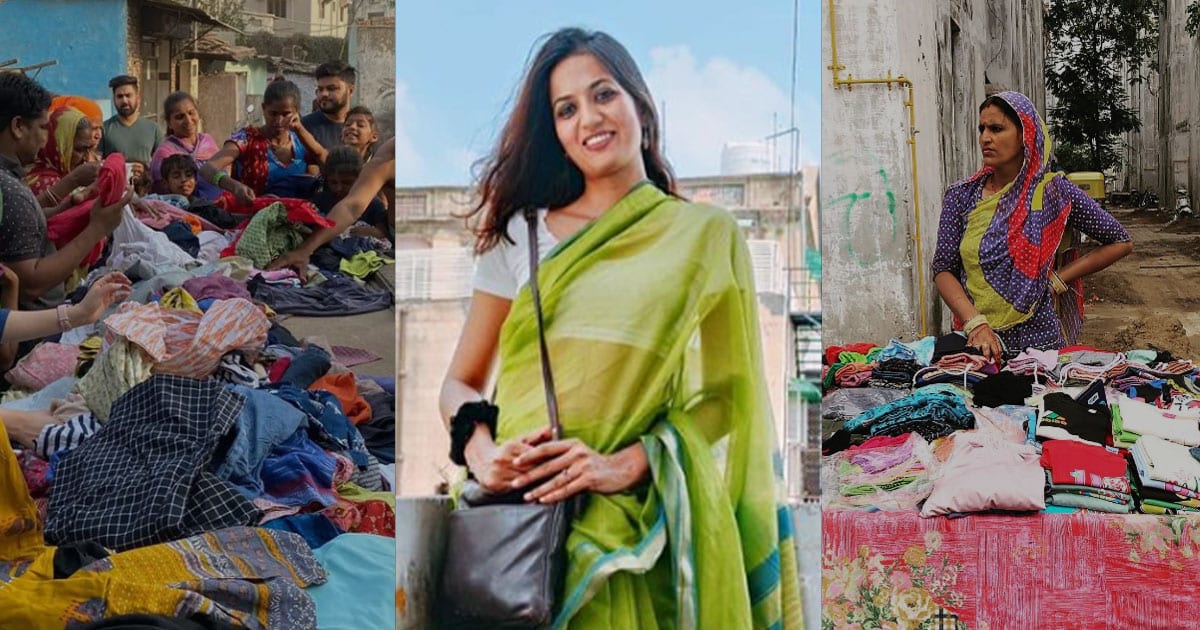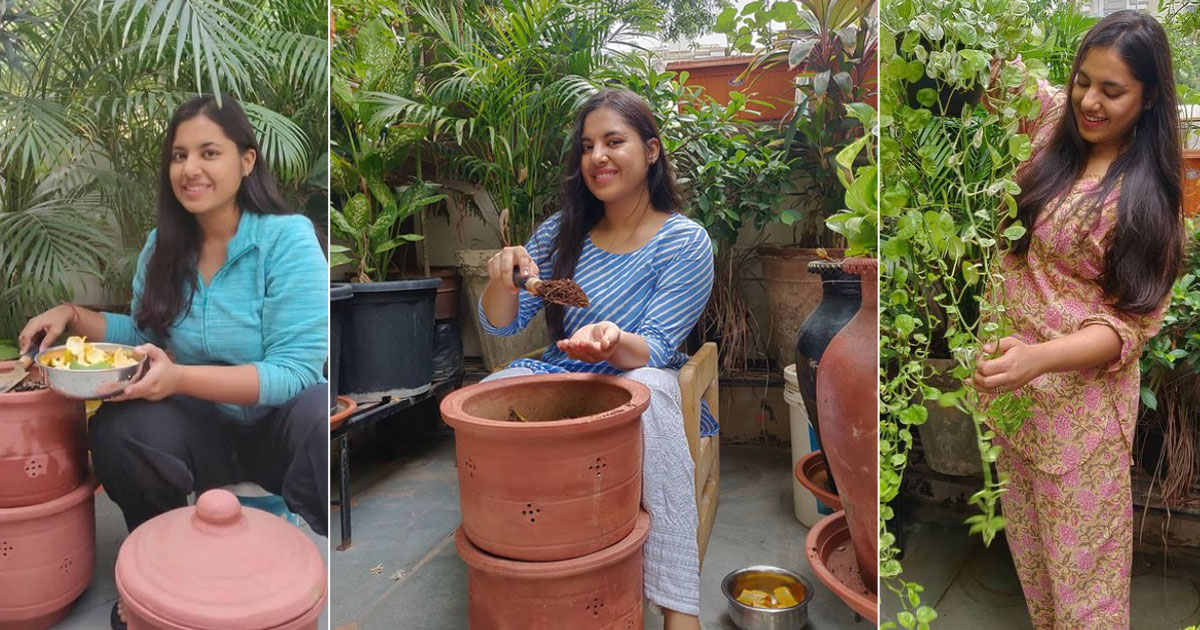Hyderabad-based Manya Cherabuddi recounts growing up in a house with a big garden. Her mother loved flowers and greens, and thus Manya was always surrounded by greenery.
“The love for nature and flowers comes from my mother,” she shares. A creative child as well, Manya remembers she would collect the things she found in her garden to create something. She once insisted on making a rakhi for her brother using natural materials before Rakshabandhan.
“I found a tree that resembled a Christmas tree. It had leaves that were really long, and I used them to make a rakhi. Though it was very itchy,” she laughs as she reveals in conversation with Life Beyond Numbers.

Back then, only Manya’s interest and childlike wonder led her to experiment with natural things around her. However, today, three decades later, Manya is an artist and entrepreneur who has successfully combined her interests with business.
Through her organization, Treehouse, and her Instagram page with over 30 thousand followers, she routinely talks about the advantages of natural dyes and how one can incorporate them into daily use. She also offers workshops for people eager to learn about natural dyes and consulting services for brands looking to integrate natural colors into their products.
Experiments with nature
With an educational background in business and art, Manya has previously worked in various fields, including healthcare technology, startups, and design, until she quit her full-time job in 2019 to take some time for herself.
“That time, I was not doing anything actively but just looking for things that would interest me. So it was out of curiosity that I came across natural dyes. It soon became my hobby and eventually something I grew very passionate about,” says Manya, who actively began experimenting with natural colors in 2019.
She would explore kitchen ingredients, food items, flowers, and fruits to create natural dyes that could easily replace artificial ones. Learning about natural dyes brought a string of personal changes in her life – she decided to stop buying clothes made with synthetic materials.
“There is so much that we can explore with nature and natural material that may not be evident to us since we are so used to ready-made things made with synthetic materials,” she comments.
As a natural progression to this hobby, Manya decided to move to teach people the many benefits of natural dyes. What started with a few workshops here and there turned into a full-time venture. Of course, the underlying idea was always to make people aware of the issues with artificial colors.
“More than the skill aspect of it, there is the larger awareness aspect about how much pollution is caused by synthetic dyes and fabrics, how they impact our water bodies, and why this is something that one needs to consider, etc.,” says Manya. However, Manya’s approach is a little different than many. Rather than directly educating people about the issue, she devised engaging workshops that let them learn about natural colors playfully.
“They are more likely to bring a change if they want to than if they do it out of guilt. For me, positive reinforcement is better than negative reinforcement. Reintroducing natural dyes as something exciting and fun helps with spreading awareness. By making my workshops engaging, I have been able to help people make a switch without giving away a serious message. After attending these workshops, so many people would start with dying their clothes themself or move to natural paints and food dyes,” she explains.

Through her purpose-driven workshops, Manya attempts to engage more people in something fun and exciting. Besides events with children and adults, Manya also helps brands use natural dyes in their products. This includes working with bakers, artists, educators, and other B2C organizations, such as toy companies looking to paint their products with natural colors.
Manya’s work has primarily involved children, for she firmly believes, “If we expose kids to natural material from the beginning, there’s a lot that they can explore. They just need that early introduction [to nature], and then they go places.”
Crafting creative collaborations
If you scroll through Manya’s Instagram account, you will see photos and videos of the many events she organizes and her newest experiments with natural colors. Among the many workshops that Manya organizes, one is titled ‘Find your calm’, a unique program she primarily conducted during the second wave of the pandemic.
“There were a lot of people who were suffering from fear, anxiety. I tried to help people become more centered and peaceful through this workshop that was inspired by various elements of nature—air, water, fire, earth. I also got a Yoga practitioner and a forest therapy practitioner on board in an attempt to help people connect with nature. The idea was to create a safe space to deal with whatever they were growing [through during that time],” she explains, adding that she used her own experiences with nature as a foundation to conduct this workshop.
She recently organized another event called ‘Mitti Masti’ in Bengaluru, Mumbai, Pune, Hyderabad, and Delhi, including walking barefoot in the mud, mud dyeing, etc.
“We intended this to be a community experience where people could just come and have fun, with no rules or restrictions. We wanted them to connect with each other and themselves,” shared Manya.
Manya’s other ongoing courses include:
- ‘Magic of Natural Colours’ where parents and children can play with natural materials and make colors for food, play, art, craft, and more.
- ‘Edible Colours from Nature’ allows one to learn how to make natural and 100 percent safe food dyes for cooking and baking.
- ‘Dye with Nature’ allows one to upcycle old garments and dye them using kitchen ingredients and local flowers.
To date, she has conducted both online and offline events and engaged with over 5,700 people.
Expanding her practice
Scientific evidence suggests synthetic dyes can cause allergies, hyperactivity, and other severe diseases in children. Additionally, people working in the chemical dye industry also have health issues. The disadvantages of synthetic dyes are thus manifold. Considering these issues, Manya has also been creating clothes for children dyed with natural colors.
Adding another feather to her cap, she recently published a biodegradable book of poetry. The zero-waste book is titled ‘Rebirth’, a trilingual poetry book wherein she has documented the “journey of an artist reclaiming her creativity and voice and a woman awakening to her authenticity and power”. The book has been screen-printed on tree-free paper with biodegradable inks.



